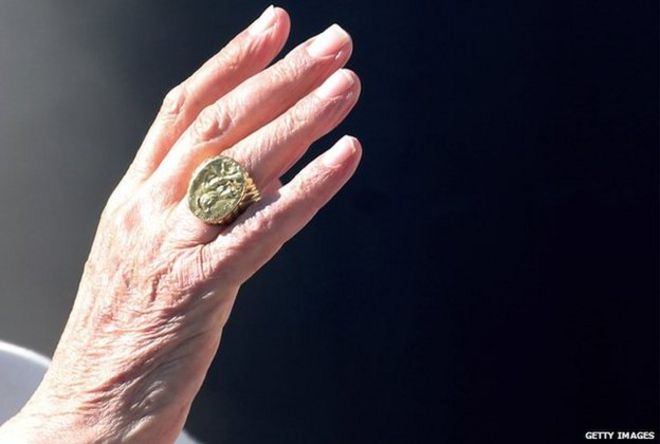Why did Pope Benedict XVI resign?
- 28 November 2013
- From the section Magazine

Benedict XVI shocked the world in February when he became the first pope to resign in almost 600 years. But attention shifted quickly to the succession, and the election of the new Pope, Francis. Amid the drama, one question was never fully answered - why did Benedict quit?
Pope Benedict's official resignation statement offered his waning physical and mental powers as the explanation, but it's long been suspected there was more to it. And my inquiries have confirmed that. I went to visit the Nigerian Cardinal, Francis Arinze at his apartment overlooking St Peter's. He's one of the most senior figures in the church and knows the Vatican like the back of his hand. He was even, for a short time in March of this year, mooted as a possible successor to Pope Benedict. And he was one of the select handful of senior church officials who were in the Pope's Apostolic Palace when he broke the news to them personally.
I raised the subject of the scandals that had preceded the Pope's bombshell decision and, in particular the Vatileaks affair in which the Pope's butler, Paolo Gabriele, had leaked confidential documents exposing Vatican power struggles. Could that have been a factor in his resignation? His answer was unexpected.
"It is legitimate for a person to speculate and say 'Maybe,' because some of his documents were taken secretly. It could be one of the reasons," he told me.
"Maybe he was so pained that his own butler leaked out so many letters that a journalist was able to write a book. It can be one of the reasons. I don't expect him to be enjoying that event."
In the Vatican, young ambitious members of the church are advised to "hear a lot, see everything and say nothing". That such a senior figure should essentially countenance a departure from the official line is significant.
Essentially, Pope Benedict was a teaching Pope, a theologian and intellectual. "His idea of hell would be to be sent on a one-week management training seminar," one insider told me. His misfortune was to accede to the papacy at a time that there was a power vacuum, in which a number of middle-ranking members of the Roman curia, the Church's civil service, had turned into "little Borgias" as another clerical official put it.
Don't take my word for it, this assessment comes from the highest source - the current leader of the Church. And Pope Francis does not mince his words. "The court is the leprosy of the papacy," he has said. He has described the curia as "narcissistic" and "self-referential". This is what Joseph Ratzinger had to deal with.
Over a period of time dating back to final years of Pope John Paul II, the heart of the HQ of the Roman Church had become dominated by infighting cliques. This was what the Pope's butler, Paolo Gabriele said he wanted to expose by photocopying and leaking all those documents.
No comments:
Post a Comment